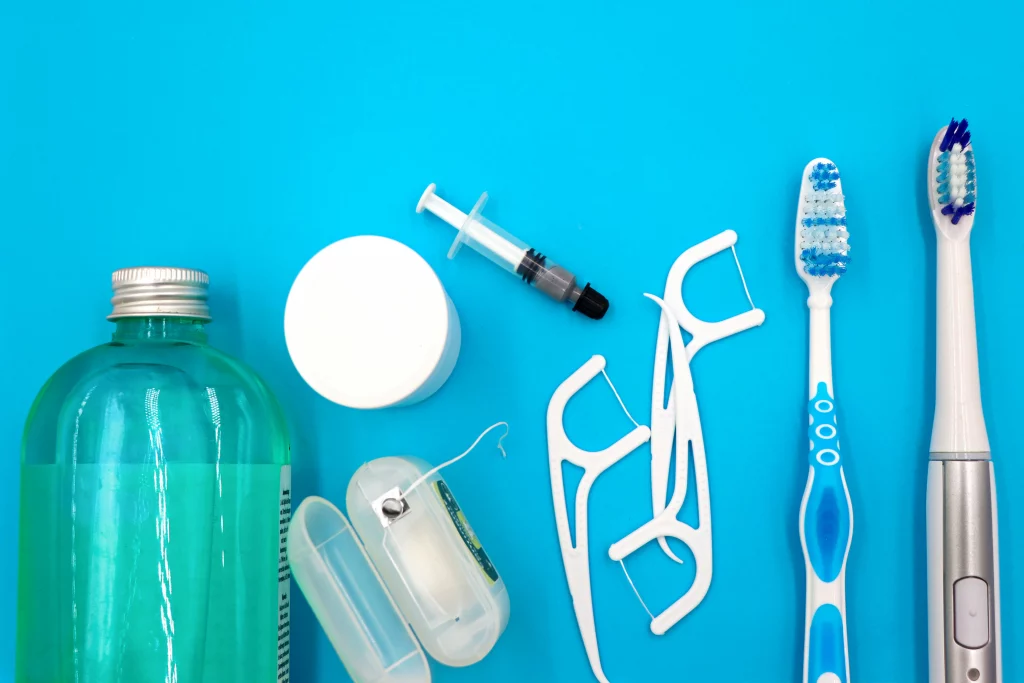Fresh breath hacks are more than just trendy tips—they’re a lifestyle essential for anyone who values social confidence and oral health. Whether one is presenting in a professional setting, engaging in personal relationships, or attending familial gatherings, the assurance of pleasant breath can markedly enhance one’s ease and poise. In this discussion, we will examine established methods, evidence-based dental practices, and routine habits designed to promote consistently fresh breath. These recommendations, grounded in both clinical insights and everyday practicality, are intended to support not only oral health but also overall social well-being.
Why Fresh Breath Matters More Than You Think
Fresh breath isn’t merely a matter of personal hygiene, it plays a significant role in shaping how individuals present themselves within various social and professional contexts. The presence or absence of fresh breath can directly influence self-confidence, affect the formation of first impressions, and alter interpersonal interactions. Whether one is participating in a professional meeting, engaging with new acquaintances, or enjoying casual conversation among friends, maintaining clean breath can substantially affect the dynamics of those interactions. Conversely, persistent bad breath clinically referred to as halitosis, may lead to diminished self-esteem, strained relationships, and increased social anxiety.
While routine brushing and flossing are foundational to oral care, these practices alone may not always prevent the onset of halitosis. Additional contributing factors include dehydration, inadequate saliva production (dry mouth), dietary choices, infrequent dental examinations, and underlying medical conditions such as gastroesophageal reflux or sinus infections. Often, malodor originates from bacterial accumulation in less accessible regions of the oral cavity, such as the dorsum of the tongue or the posterior pharynx.
Encouragingly, the maintenance of fresh breath remains achievable through the adoption of comprehensive daily oral hygiene routines, the judicious selection of dental care products, a balanced diet, and regular dental assessments. Addressing the root causes of oral malodor, rather than merely masking symptoms, represents a substantive step towards enhanced self-confidence, improved social engagement, and overall well-being.
The Hidden Causes of Bad Breath

Bad breath doesn’t always come from garlic or onions. Many underlying causes can create persistent odor:
Poor Oral Hygiene – Neglecting fundamental oral hygiene practices such as brushing, flossing, and attending routine dental cleanings allows residual food particles and plaque to accumulate within the oral cavity. This accumulation fosters an environment conducive to bacterial proliferation, particularly in interdental spaces, subgingival regions, and on the tongue’s surface. As these bacteria metabolize organic debris, they emit volatile sulfur compounds, which are widely recognized as principal contributors to chronic halitosis.
Dry Mouth (Xerostomia) – Saliva essentially serves as the mouth’s primary cleansing mechanism, removing residual food debris and helping to buffer acidic byproducts from oral bacteria. When salivary flow diminishes whether due to dehydration, side effects from certain medications, or habitual mouth breathing, the oral environment becomes dry, creating favorable conditions for bacterial overgrowth. This shift can rapidly contribute to halitosis and an unpleasant, sticky sensation within the mouth.
Gum Disease – When plaque isn’t properly removed, it eventually calcifies into tartar, which can lead to significant gum irritation. This irritation is a primary factor in the development of periodontal diseases such as gingivitis and periodontitis. As these infections progress, patients may experience inflammation, gum bleeding, and the formation of periodontal pockets spaces between the teeth and gums that provide an ideal environment for bacterial proliferation. The metabolic byproducts of these bacteria, including various malodorous compounds, are a common cause of persistent halitosis. If left untreated, the ongoing infection and inflammation can ultimately result in the loss of teeth.
Tonsil Stones – are small, calcified formations that develop within the crypts of the tonsils. These deposits are composed primarily of calcium but also trap food particles, bacteria, and mucus. As these materials accumulate and decompose, they produce a notably unpleasant odor. While tonsil stones are typically benign, they represent a surprisingly common and frequently overlooked contributor to persistent halitosis.
Digestive Issues – Acid reflux, also known as GERD, can result in gastric acids ascending the esophagus, which often imparts a noticeably sour or bitter odor to the breath. Additionally, disruptions in the balance of gut microbiota or inefficient digestive processes may facilitate the formation of malodorous gases that are subsequently expelled through the oral cavity. Notably, even individuals who maintain rigorous oral hygiene may experience persistent halitosis if underlying digestive disorders are present, highlighting the potential need for medical evaluation in such cases.
Medications – Numerous widely prescribed medications including antihistamines, antidepressants, diuretics, and antihypertensives are known to diminish saliva production or disrupt the natural equilibrium within the oral cavity. This phenomenon, termed xerostomia, creates an environment in which oral bacteria can proliferate due to the decreased presence of saliva, which ordinarily functions to cleanse the mouth and neutralize acids. Consequently, individuals may experience halitosis, or unpleasant breath, despite maintaining consistent oral hygiene routines.
To effectively eliminate persistent bad breath, it’s essential to first identify its underlying cause. Whether the issue stems from inadequate oral hygiene, reduced saliva production, certain dietary choices, or an undiagnosed medical condition, pinpointing the source is crucial. Addressing the root problem allows for targeted intervention, rather than merely concealing symptoms with temporary solutions such as mints or mouthwash. In doing so, individuals can achieve genuinely fresher breath, improved self-confidence, and enhanced overall health.
Daily Fresh Breath Hacks That Actually Work
Maintaining fresh breath does not require elaborate routines or costly products. In fact, consistent, straightforward daily practices can effectively promote oral cleanliness and self-assurance throughout the day. This discussion will address strategies that extend beyond standard oral hygiene, targeting the underlying causes of halitosis. Whether one is in a professional setting, a social environment, or on a date, these evidence-based recommendations offer practical solutions for sustained oral freshness. Let us examine these methods in greater detail.
Brush Smarter, Not Harder
Brushing twice daily is widely recommended, yet the effectiveness of this practice depends greatly on proper technique. It is important to select a soft-bristled toothbrush and fluoride toothpaste, then dedicate a full two minutes to brushing, ensuring that every surface, including the often-overlooked gumline, receives adequate attention. The gumline is particularly susceptible to bacterial accumulation, making thorough cleaning in this area essential for oral health.
Additionally, it is advisable to replace your toothbrush every three months or following any illness to maintain optimal hygiene and prevent reinfection.
Master the Art of Tongue Cleaning
The tongue plays a significant role in the development of halitosis. Its textured surface provides an ideal environment for the accumulation of bacteria and food debris. Utilizing a tongue scraper or the backside of a toothbrush to gently clean the tongue from back to front is recommended.
Incorporating this practice into one’s daily oral hygiene routine can meaningfully diminish the presence of odor-causing compounds.
Hydrate Like It’s Your Job
A dry mouth is often associated with unpleasant breath. Maintaining adequate hydration typically at least eight glasses of water per day can help reduce oral bacteria and promote healthy saliva production. It is advisable to avoid sugary beverages and caffeinated sodas, as these tend to exacerbate dryness. Additionally, chewing sugar-free gum after meals can further stimulate saliva flow and support oral hygiene.
Snack on Crunchy Fruits & Veggies
Apples, carrots, and celery serve more than just nutritional purposes; they act as natural cleansers for your teeth and gums. When consumed, these foods aid in the removal of food particles while also stimulating saliva production, which contributes to oral hygiene.
Additionally, the fiber content in these items helps mitigate acid buildup after meals, offering further protection for tooth enamel.
Lifestyle Shifts That Transform Your Breath
Maintaining fresh breath extends well beyond temporary solutions; it fundamentally rests on implementing sustainable lifestyle modifications that enhance both oral health and overall well-being. Even minor adjustments ranging from dietary choices to effective hydration and stress management can significantly mitigate the underlying causes of halitosis. Addressing these root issues, rather than resorting to superficial fixes, is essential for achieving consistently clean breath.
For individuals seeking lasting confidence in their interpersonal interactions, a comprehensive approach to oral hygiene and daily habits is paramount. The following evidence-based strategies present practical, impactful ways to cultivate and sustain fresh breath.
Ditch Smoking and Limit Alcohol – Smoking significantly compromises oral health by contributing to halitosis, dental discoloration, and exposure to harmful chemicals. Alcohol consumption exerts similar detrimental effects, such as oral dryness and persistent malodor. Reducing or eliminating these habits can promote fresher breath, improved periodontal health, and noticeably brighter teeth. For individuals who continue to smoke or drink regularly, it is advisable to implement rigorous oral hygiene routines and maintain consistent dental appointments to mitigate the associated risks.
Balance Your Diet – High-protein, low-carbohydrate diets are often associated with “keto breath,” an unpleasant oral odor stemming from metabolic changes. Conversely, frequent consumption of sugary foods provides an ideal environment for harmful oral bacteria to thrive. Striving for a balanced diet, including carbohydrates, proteins, fruits, and vegetables remains essential for overall well-being. Additionally, incorporating probiotic-rich foods such as yogurt or kefir may assist in promoting a healthy balance of bacteria in both the mouth and the digestive tract.
Avoid Dry Mouth Triggers – Dry mouth can result from various factors, including excessive caffeine intake, certain medications, psychological stress, or habitual mouth breathing. To address this issue, consider the following strategies:
- Practice nasal breathing whenever possible, as it promotes optimal oral moisture.
- Reduce caffeine consumption, given its dehydrating effects on the body.
- Utilize a humidifier at night to maintain adequate ambient moisture.
- Use saliva-stimulating lozenges, readily available at most pharmacies, to encourage natural saliva production.
Employing these measures may effectively alleviate symptoms of dry mouth in many individuals.
Dental Support for Long-Term Freshness
While personal oral hygiene routines are undeniably significant, professional dental care remains indispensable for sustaining optimal oral health and fresh breath. Home care, while effective in many respects, cannot substitute for the diagnostic capabilities of trained dental professionals who can identify underlying concerns such as periodontal disease or developing carious lesions, both of which may contribute to persistent halitosis.
Furthermore, dentists provide individualized recommendations, moving beyond generic advice to address each patient’s distinct oral health profile. Regular dental assessments, therefore, not only preserve the integrity of one’s smile but also bolster self-confidence by ensuring long-term freshness and wellbeing.
The Power of Professional Cleanings
Even with exemplary brushing and flossing routines, individual efforts simply cannot match the thoroughness of a professional dental cleaning. Dental hygienists possess the tools and expertise necessary to remove plaque and tartar particularly in areas beneath the gumline that standard at-home methods fail to reach. Scheduling biannual dental visits for cleanings and examinations is a highly effective measure for maintaining oral health and ensuring consistently fresh breath. Regular professional care remains essential, even with diligent personal hygiene.
Addressing Dental Conditions Early
Conditions such as gum disease, dental caries, and compromised fillings often serve as reservoirs for bacterial accumulation, leading to persistent oral malodor. Notable indicators including a lingering unpleasant taste, gingival bleeding, or heightened tooth sensitivity should not be ignored. Seeking a comprehensive dental evaluation at GPD Dental is advisable, as early intervention enables the identification and management of potential issues before they adversely affect one’s oral health and self-assurance.
Top Products That Help Keep Breath Fresh

While daily oral hygiene practices remain fundamental, certain products can significantly enhance outcomes. Consider the following:
Select alcohol-free mouthwashes containing antibacterial agents such as cetylpyridinium chloride, which are effective in reducing oral bacteria.
Opt for zinc-based rinses or chewing gums, as zinc compounds have demonstrated efficacy in neutralizing malodor compounds.
Utilize water flossers to thoroughly remove interdental debris that traditional flossing may miss.
Employ smart toothbrushes equipped with timers and pressure sensors to encourage optimal brushing technique and duration.
Additionally, it is important to monitor expiration dates, particularly for mouth rinses and sprays, to ensure product efficacy and safety.
When to See a Dentist About Bad Breath
If you notice that persistent bad breath continues despite consistent oral hygiene practices such as regular brushing, flossing, and adequate hydration, it is advisable to consult a dental professional. Chronic halitosis is often indicative of underlying conditions, including periodontal disease, oral infections, dental abscesses, or tonsilloliths (tonsil stones). Furthermore, systemic health concerns like diabetes mellitus or gastroesophageal reflux disease (GERD) may also contribute to ongoing malodor.
During a professional evaluation, the dentist will conduct a comprehensive assessment, which may involve deep cleaning procedures and diagnostic imaging to detect less obvious sources of the problem. Through individualized treatment strategies and expert guidance, dental professionals can address the root causes of halitosis, thereby promoting both sustained oral health and improved breath quality.
Conclusion: Own Your Confidence with Fresh Breath Hacks
Persistent halitosis need not define your interactions or diminish your self-assurance. In truth, consistent implementation of fundamental oral hygiene habits, selection of appropriate dental care products, and regular professional consultations form the cornerstone of effective breath management. At GPD Dental, comprehensive support is available from standard prophylactic cleanings to individualized advanced interventions ensuring thorough care at every stage.
If you are prepared to address the issue directly, consider scheduling an appointment with GPD Dental. Take this step toward improved oral health and renewed confidence in both your breath and your smile.
Frequently Asked Questions (FAQs)
1. How often should I brush and floss to maintain fresh breath?
It is essential to brush your teeth at least twice daily; otherwise, significant amounts of plaque and food debris may remain, increasing the risk of halitosis. Daily flossing is equally important, as it helps remove particles from areas that brushing alone cannot reach. Additionally, cleaning your tongue whether with a tongue scraper or your toothbrush effectively reduces odor-causing bacteria that often persist in less accessible regions. Maintaining adequate hydration is also vital; a moist oral environment encourages the natural removal of bacteria and helps prevent dry mouth, a condition commonly associated with increased bad breath.
2. Can certain foods really make my breath fresher?
Certain foods play a significant role in naturally maintaining fresh breath. For instance, consuming crunchy fruits and vegetables such as apples and celery stimulates saliva production and promotes mechanical cleaning of the oral cavity, which assists in removing bacteria responsible for unpleasant odors. Herbs like parsley and mint also contribute, not only by masking odors but by supporting oral hygiene through their natural properties. Conversely, foods with strong odors specifically, garlic and onions—are notorious for lingering on the breath, especially when oral hygiene practices are neglected post-consumption. Similarly, sugary snacks provide a favorable environment for bacterial growth, exacerbating halitosis. Therefore, while dietary choices can influence breath freshness, it is essential to complement these choices with proper oral hygiene to achieve optimal results.
3. Is chewing gum enough to fix bad breath?
Chewing sugar-free gum increases saliva production, which assists in removing residual food particles and oral bacteria. Additionally, it offers a temporary minty flavor that can mask unpleasant breath. Still, it is important to note that gum should not be viewed as a replacement for essential oral hygiene practices such as brushing, flossing, and professional dental care. While convenient for short-term breath freshness, maintaining lasting oral health requires consistent hygiene routines and addressing any underlying dental concerns.
4. What’s the best mouthwash for bad breath?
Select an alcohol-free mouthwash that includes antibacterial agents such as chlorhexidine, cetylpyridinium chloride, or zinc. These ingredients are effective at reducing odor-causing bacteria and assist in maintaining oral moisture. It is advisable to avoid mouthwashes containing alcohol, as they can contribute to oral dryness and may actually exacerbate halitosis over time.
5. When should I see a dentist about my breath?
If you consistently practice proper oral hygiene yet continue to experience persistent halitosis for several days, it is advisable to consult a dental professional. Ongoing malodor may suggest underlying issues such as periodontal disease, or potentially indicate a systemic medical condition that necessitates professional evaluation. Prompt diagnosis and intervention are crucial to effectively address the cause and restore optimal oral health.


